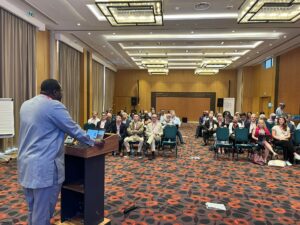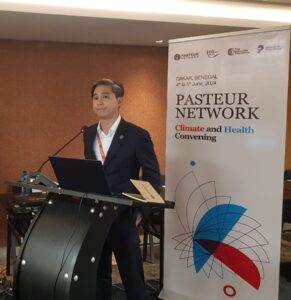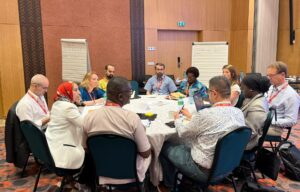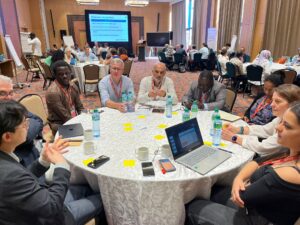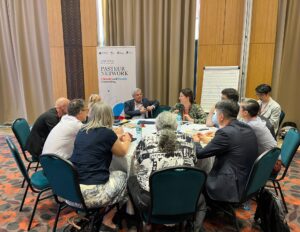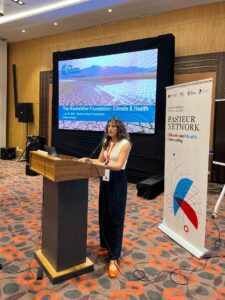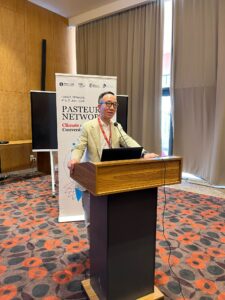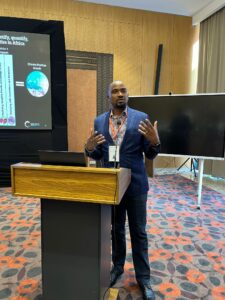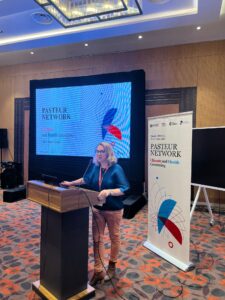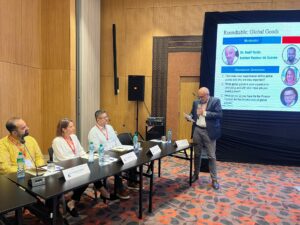On Monday, June 17th, in Paris, the Pasteur Network and the International Vaccine Institute (IVI) signed a landmark Memorandum of Understanding (MoU) to bolster their collaboration in global health initiatives. This agreement marks a significant step towards addressing infectious diseases and improving public health worldwide.
The MoU outlines a comprehensive framework for cooperation between the two organizations, focusing on several critical areas:
- Vaccine R&D Ecosystem: Strengthening vaccine research and development, particularly in the global South. This includes regional manufacturing of vaccines and enhancing public health responses to epidemic and pandemic emergencies.
- Training and Education: Supporting joint training and educational activities to build capacity and expertise in vaccine research and development.
- Collaborative Projects: Actively pursuing funding opportunities and developing joint proposals for research and training programs.
Rebecca F. Grais, Executive Director of the Pasteur Network, highlighted the significance of this partnership: “By combining our strengths and resources, we aim to accelerate vaccine development and improve accessibility, particularly in underserved regions. This collaboration is a crucial step towards our shared vision of a healthier world.”
Jerome H. Kim, Director General of IVI, echoed this sentiment: ‘Signing this MoU with the Pasteur Network will empower us to leverage our collective expertise and amplify our efforts in combating infectious diseases worldwide. This collaboration will support IVI’s capabilities in vaccine research and development, enabling us to tackle health challenges more effectively. Together, we will generate synergies to drive innovation of life-saving vaccines for the populations who need them most.’
The partnership will be guided by a Steering Committee, ensuring regular reviews and progress on collaborative projects. Both parties have committed to clear communication, transparency, and adherence to policies on anti-fraud, corruption, equity, and sustainability.
This MoU represents a strategic alignment of resources and expertise, setting the stage for innovative solutions to global health challenges. Together, the Pasteur Network and IVI are poised to make a lasting impact on global health, particularly in regions that are most vulnerable to infectious diseases.
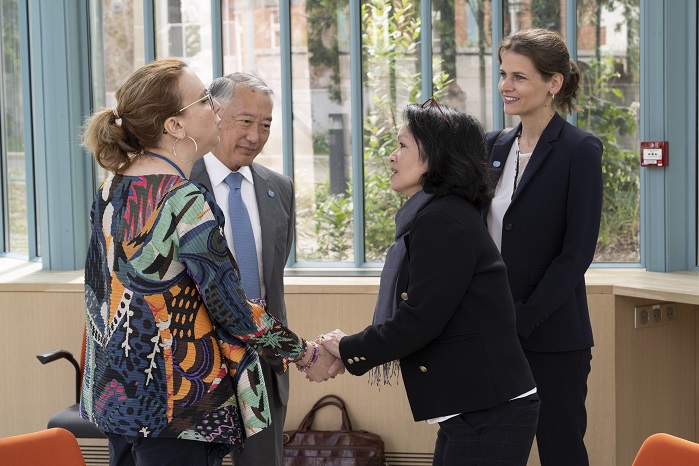
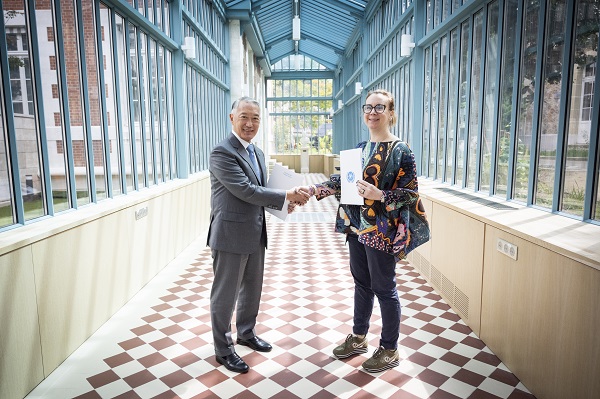
About the Pasteur Network:
The Pasteur Network is an alliance of over 30 institutes which plays a crucial role in tackling global health challenges through science, innovation and public health. Its distinctive strength lies in the diversity and extensive geographic reach, spanning 25 countries across 5 continents, fostering a dynamic community of knowledge and expertise.
The Pasteur Network is recognized as a WHO non-state actor, and members of the network are frequently embedded into local Ministries of Health. The PN sustains a global infrastructure encompassing 50+ national and regional reference laboratories, which includes multiple Biosafety Level 3 Laboratories, and 17 WHO Collaborating Centers.
The Pasteur Network’s work is guided by four strategic pillars: 1) Epidemic Preparedness, Intelligence, with focus on Climate sensitive diseases, 2) Research, Development, and Innovation, 3) Knowledge Communities, and 4) Good Governance and Equity.
About IVI:
The International Vaccine Institute (IVI) is a non-profit international organization established in 1997 at the initiative of the United Nations Development Program with a mission to discover, develop, and deliver safe, effective, and affordable vaccines for global health.
IVI’s current portfolio includes vaccines at all stages of pre-clinical and clinical development for infectious diseases that disproportionately affect low- and middle-income countries, such as cholera, typhoid, chikungunya, shigella, salmonella, schistosomiasis, hepatitis E, HPV, COVID-19, and more.
IVI developed the world’s first low-cost oral cholera vaccine, pre-qualified by the World Health Organization (WHO), and developed a new-generation typhoid conjugate vaccine that also achieved WHO prequalification in early 2024.
IVI is headquartered in Seoul, Republic of Korea, with a Europe Regional Office in Sweden, an Africa Regional Office in Rwanda, a Country Office in Austria, and a Country and Project Office in Kenya. IVI additionally co-founded the Hong Kong Jockey Club Global Health Institute in Hong Kong and hosts Collaborating Centers in Ghana, Ethiopia, and Madagascar. Forty one countries and the WHO are members of IVI, and the governments of the Republic of Korea, Sweden, India, Finland, and Thailand provide state funding.
Launch of a Climate-Health Observatory Accelerator program during the Pasteur Network Climate and Health Convening
(Dakar, June 4-5, 2024)
On June 4-5 in Dakar Senegal, 60+ participants, including members of the Pasteur Network and external experts met to discuss how the Pasteur Network can help address the growing impact of climate change on global health, fostering collaborative research and innovative solutions to mitigate emerging health threats and improve public health resilience
The event was supported by The Rockefeller Foundation and the HKJC Institute of Philanthropy who are funding the Pasteur Network’s new Climate-Health Observatory Accelerator program which aims to:
- Create foundations for C-H observatories through global network of Fellows.
This fellowship program is a unique opportunity designed for members in Low and Middle-Income Countries (LMICs) to empower researchers to provide support to local stakeholders in making informed decisions with regards to climate and health. - Advance generalizable tools and practices through Pasteur Network Exemplars
Exemplar members of the Pasteur Network will share their knowledge and expertise in climate and health and help to guide the fellowship cohort in their region - Scale impact through shared knowledge via Global Goods and an internal knowledge sharing platform. The 2-day event in Dakar focused on the Accelerator project in more detail, including break-out discussion sessions specifically on the fellowship program design and development of global goods.
Global experts also presented and facilitated discussion on various topics such as updates on the progress of the Pandemic Treaty (Dr. Maria de Lourdes Aguiar Oliveira from FioCruz), important trends and considerations for integrating climate aspects into health surveillance efforts (Dr. Linda Venczel from PATH), connecting climate-health recommendations with policy and investment decisions for government stakeholders (Mr. Jackson Kimani from Climate Action Platform for Africa-CAP-A), showcase of the WHO HIVE collaboration platform (Mr. Brian Yau from WHO), and a round table discussion on the development and dissemination of global goods (Dr. Cristina Tato from Chan Zuckerberg Biohub, Mr. Gaurav Godhwani from Civic Data Lab, and Dr. Felipe Colón-González from Wellcome Trust)
The convening was also an important celebration of Institut Pasteur de Dakar’s 100th anniversary, including a tour of the institute and a celebration cocktail. Celebrating IP Dakar’s 100th anniversary marks a century of pioneering research, innovation, and contributions to global health, reinforcing its vital role in combating infectious diseases and improving public health worldwide The Pasteur Network extends its heartfelt gratitude to the Rockefeller Foundation and the Institute of Philanthropy for their generous support, which made the meeting in Dakar on June 4-5th possible. We also wish to thank all the participants for their invaluable contributions and engagement, which were instrumental in advancing our discussions on the critical intersection of climate and health.
